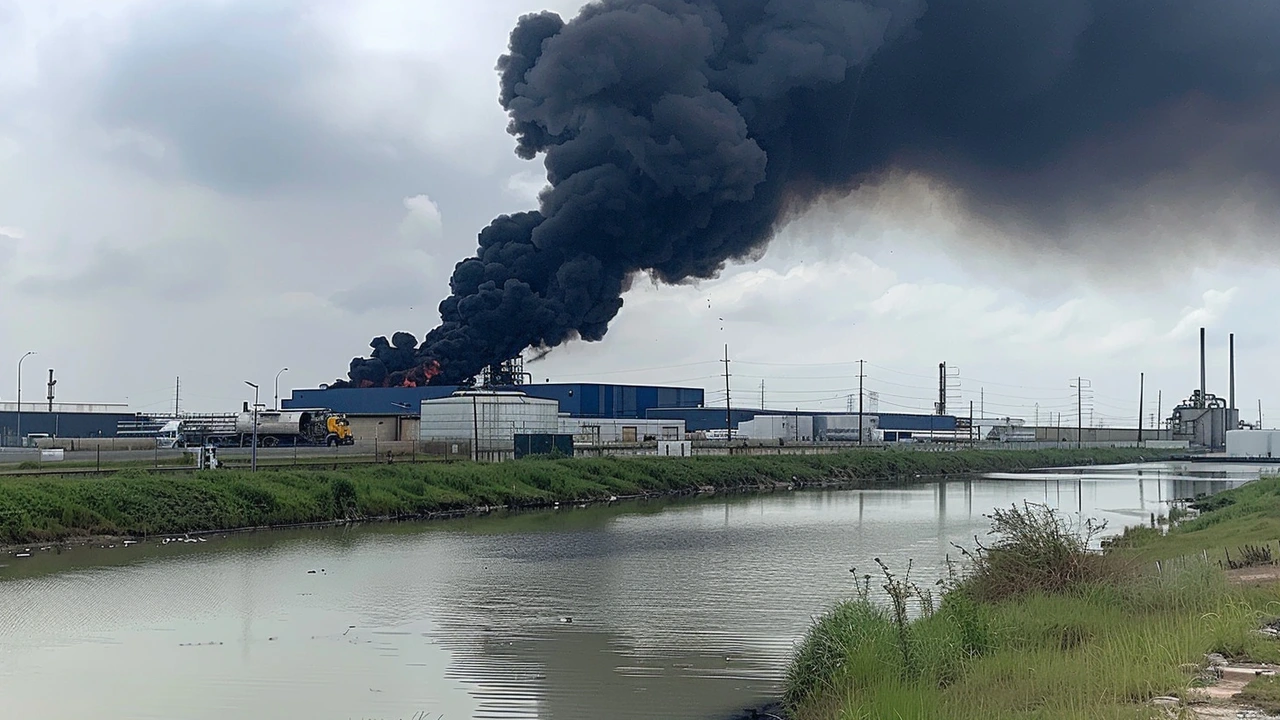Dangote refinery fire – latest facts and fallout
On Monday night a blaze broke out at the Dangote oil refinery in Lagos, sending smoke and headlines across the continent. The fire started in one of the crude processing units and quickly spread to nearby storage tanks. Fire crews from the Lagos State Fire Service, plus a team from the refinery’s own emergency unit, rushed in and got the flames under control after about three hours.
Witnesses say the heat was intense and the sky turned orange for several minutes. Neighbouring residents reported a strong smell of fuel and a short power cut in the surrounding area. No one was seriously injured, but a few workers were treated for minor burns and smoke inhalation.
How the fire started and the immediate response
According to the refinery’s initial statement, the fire began after a pressure valve malfunctioned during routine maintenance. The valve failed to close, causing a sudden release of hot oil that ignited when it met an open spark source. Engineers say such incidents, while rare, can happen in large‑scale plants that handle millions of barrels a day.
The emergency plan kicked in right away. Automatic shut‑off systems isolated the affected unit, and water cannons were deployed to douse the flames. The Lagos State Fire Service arrived within ten minutes, bringing specialized foam that works better on oil fires than plain water. By the time the fire was fully out, the damaged area was limited to one processing lane, avoiding a bigger chain reaction.
Authorities have opened an investigation to pinpoint the exact technical failure and to check if any safety protocols were missed. The refinery’s management promised a full report within two weeks and said they will review all maintenance schedules to prevent a repeat.
Implications for Nigeria’s economy and energy future
The Dangote refinery is Africa’s biggest private oil‑processing project, slated to produce up to 650,000 barrels of refined products a day. Even a short disruption can affect fuel supply, especially in the western states that rely heavily on its output.
Market analysts noted a slight dip in local fuel prices the day after the fire, but the impact is expected to be minimal because the refinery still runs at about 85 % capacity. However, any prolonged shutdown could tighten supply, push up prices, and strain the national budget, which counts on the refinery’s revenue to fund infrastructure projects.
On the upside, the quick containment shows that emergency response systems are improving. The incident is also prompting government regulators to tighten inspection regimes across all Nigerian refineries, which could raise safety standards industry‑wide.
For everyday Nigerians, the key takeaway is that the fire didn’t cause a major fuel shortage, and the refinery is back to normal operations within a few days. Keep an eye on official updates if you notice any sudden changes at the pump.
In short, the Dangote refinery fire was a serious alarm clock but not a disaster that crippled the country’s energy supply. It highlights the need for rigorous maintenance, fast‑acting emergency crews, and transparent reporting—lessons that will shape how Nigeria handles its growing oil infrastructure.
Fire Contained at Dangote Refinery's Effluent Treatment Plant Without Injuries
On June 26th, a fire erupted at the effluent treatment plant of Dangote's petroleum refinery. The fire was quickly controlled, according to Anthony Chiejina, the Chief Corporate Communication Officer. There were no injuries, and the refinery operations remain unaffected.
View More





